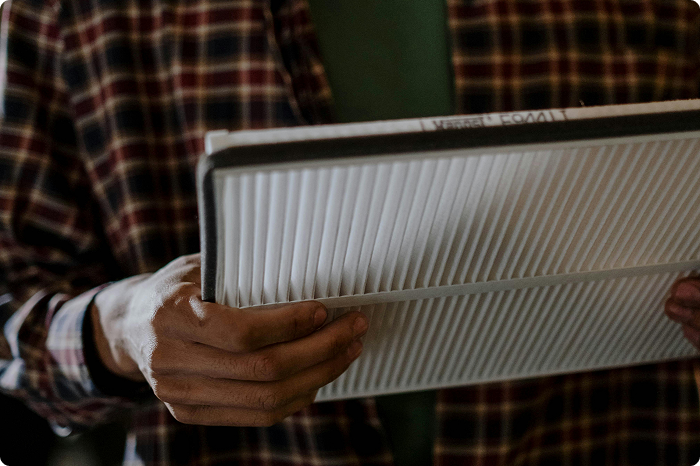The Importance of Maintaining Clean Furnace Filters for Optimal Heating Performance
By Jose Donnelly · Jul 25, 2025

Maintaining an efficient heating system is crucial, especially during the colder months when a dependable furnace is essential. One common issue that reduces the efficiency of a furnace is dirty filters. These often-overlooked components can drastically affect the performance and longevity of your heating system. This article provides practical advice on identifying problems caused by dirty furnace filters, along with detailed steps for maintaining and replacing them. Investing a little time in filter maintenance can save considerable money and prevent potential furnace issues.
Why Dirty Filters Are a Problem
Reduced Airflow
Dirty filters restrict airflow through your heating system, making the furnace work harder to circulate warm air throughout your home.
- Increased Energy Consumption: When the furnace works harder, it uses more energy, leading to higher utility bills.
- Overheating Risks: Restricted airflow can cause the furnace to overheat, triggering safety shut-offs and reducing the lifespan of the unit.
Compromised Air Quality
Filters trap airborne particles, including dust, pollen, and other allergens. A dirty filter loses its ability to capture these particles effectively, which diminishes the indoor air quality.
- Health Concerns: Poor air quality can exacerbate allergies and respiratory issues.
- Dust Accumulation: More dust can settle on surfaces throughout your home, increasing the frequency of cleaning.
Component Strain
A blocked filter can strain various furnace components, including the blower motor and heat exchanger.
- Wear and Tear: Increased strain accelerates wear and tear, potentially leading to expensive repairs.
- Motor Damage: The blower motor could burn out if it works too hard due to a dirty filter.
Recognizing the Signs of Dirty Filters
Increased Heating Bills
One of the first signs of a clogged filter is a sudden spike in your energy bills. This increase is due to your furnace running more frequently and consuming more energy.
Frequent Cycling
If you notice your furnace turning on and off more frequently than usual, it could signify that the system is struggling to maintain a consistent temperature.
Inadequate Heating
Rooms not getting as warm as they should be can indicate that the airflow is restricted due to a dirty filter. Check if some rooms feel colder compared to others.
Visible Dirt on Filter
A simple visual inspection of the filter can tell you a lot. If the filter appears clogged and covered in dust or debris, it's time to replace it.
How to Replace and Maintain Furnace Filters
Choosing the Right Filter
Filters come in various types and sizes. Ensure you select the right one for your furnace.
- MERV Ratings: Minimum Efficiency Reporting Value (MERV) rating ranges from 1 to 20. Higher ratings mean better filtration, but consult your furnace's manual to avoid compatibility issues.
- Size and Type: Refer to your furnace's specifications to find the correct size and type.
Step-by-Step Replacement Guide
- Turn Off the Furnace: Ensure the furnace is powered off to avoid injury or damage.
- Locate the Filter Compartment: Typically, the filter is located near the blower fan or the intake vent.
- Remove the Old Filter: Slide out the old filter carefully, ensuring you don't knock dust and debris into the unit.
- Install the New Filter: Slide the new, correctly sized filter into place, ensuring it's oriented correctly as per the arrows indicating airflow direction.
- Power On the Furnace: Turn the furnace back on and check for normal operation.
Maintenance Schedule
- Monthly Checks: Inspect filters monthly, especially during peak usage seasons.
- Replacement Frequency: Replace filters every 1 to 3 months, depending on the type and your household's specific needs.
Extra Tips for Maintaining Clean Filters
Regular HVAC System Inspection
Schedule regular HVAC system inspections to ensure all components, including the filters, are functioning correctly.
Use High-Efficiency Filters
Consider upgrading to high-efficiency filters, especially if you have pets or family members with allergies. These filters capture smaller particles, improving air quality.
Maintain a Clean Environment
Keeping your home clean reduces the amount of dust and debris that gets sucked into the furnace filters.
When to Call a Professional
Persistent Issues
If you notice persistent issues like frequent cycling, uneven heating, or continued high energy bills despite regular filter changes, it's time to consult a professional.
Complicated Replacements
If the filter compartment is hard to access or if you're unsure about the correct filter type, a professional can ensure the job is done correctly.
Comprehensive HVAC Maintenance
Annual professional maintenance can help identify any potential issues before they become major problems. They'll clean the entire system, including ducts and filters, ensuring optimal performance.
Choosing the Right Professional
Check Credentials
Always ensure the HVAC technician is licensed and insured. This guarantees they have the appropriate training and protection.
Get Multiple Quotes
Before deciding, get multiple quotes to understand the service offerings and costs.
Read Reviews
Check reviews and ask for references to learn about the experiences of previous customers.
Conclusion
Maintaining clean furnace filters is one of the simplest yet most effective ways to ensure your heating system functions efficiently and reliably. Regular checks and timely replacements can prevent many common furnace issues and improve the air quality in your home. If you encounter any persistent problems or need professional assistance, consider using HouzTask AI to ask questions or Find a Pro for trusted professionals in your area.
By staying proactive, you can keep your furnace operating smoothly, ensuring a warm and comfortable home throughout the heating season.
Need help?
Let HouzTask help you diagnose the issue or connect with a trusted local pro — in minutes.
Get Started with HouzTask